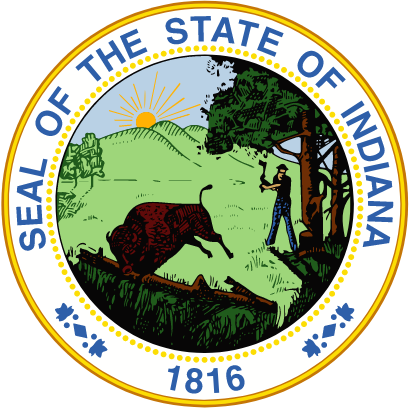Mining and Geological Engineers, Including Mining Safety Engineers: 
Conduct sub-surface surveys to identify the characteristics of potential land or mining development sites. May specify the ground support systems, processes and equipment for safe, economical, and environmentally sound extraction or underground construction activities. May inspect areas for unsafe geological conditions, equipment, and working conditions. May design, implement, and coordinate mine safety programs.
Also includes
About the Job
| Primary Industry | Science, Technology, Engineering, and Mathematics |
| Indiana Average Salary | $113,298.00 |
| Average Time to Fill | 50 days |
| Typical Education | Bachelor's degree |
| Typical Experience | Over 4 years, up to and including 6 years |
| Current Openings | |
| 2 Year Projected Openings (2016-2018) | 5 |
| 2 Year Expected Percentage Change (2016-2018) | 0.00 % |
| 10 Year Projected Openings (2016-2026) | 27 |
| 10 Year Expected Percentage Change (2016-2026) | 2.56 % |
For more information on the new projection methodology, visit Hoosiers by the Numbers .
Find Available Postings
Select an Area:
...
Skills Profile

Essential (Soft) Skills
Essential Skills to Employers
Critical Thinking
Information Gathering
Problem-solving
Decision-making
Creativity
Integrity
Organization
Numerical and Arithmetic Application
Technology and Tool Usage
Leadership
Oral Communication
Written Communication
Resource Allocation
Top Job Duties and Responsibilities
Thinking Creatively
Design mechanical or production-related tools, fixtures, or devices
Design manufacturing processes or methods
Design electro-mechanical equipment or systems
Design control systems
Coordinate development of refining processes
Develop engineering technical methods or processes
Design industrial or manufacturing machinery or equipment
Design mining or petroleum extraction system equipment
Develop safety procedures and regulations
Develop engineering policies, procedures, or standards
Determine methods of how engineering operations are carried out
Develop simple operational data repositories or databases
Develop complex computer databases
Write computer programs or code
Improve test devices or techniques in manufacturing, industrial or engineering setting
Design waste recovery methods
Design construction projects
Write business project or bid proposals
Create mathematical or statistical diagrams, charts, or tables
Getting Information
Gather physical or topographical survey data
Determine effects of pollution
Review engineering codes and specifications
Read detailed electronic design specifications
Review maps to determine location or routes
Research engineering designs or applications
Interpret architectural or engineering information from blueprints or schematics
Review engineering data or reports
Survey land or properties
Collect engineering data
Conduct field research
Obtain technical support instructions from scientists or engineers
Determine factors affecting production processes
Guiding, Directing, and Motivating Subordinates
Direct geological surveys
Direct construction activities
Direct natural resources extraction or mining projects
Supervise engineering or other technical personnel
Lead engineering teams
Supervise engineering personnel
Direct engineering research or investigative studies
Coordinate safety or regulatory compliance activities or drills
Take responsibility for safety of group
Manage industrial production activities or processes
Delegate authority for engineering activities
Analyzing Data or Information
Analyze engineering data
Evaluate designs or specifications to ensure quality
Analyze engineering design problems
Perform engineering research
Conduct standardized quantitative laboratory analyses
Identify problems using mathematical or statistical methods
Perform statistical analysis or modeling
Analyze ecosystem data
Interpret aerial photographs
Conduct standardized qualitative laboratory analyses
Analyze effectiveness of safety systems or procedures
Analyze financial data or information
Estimating the Quantifiable Characteristics of Products, Events, or Information
Estimate operational costs
Estimate engineering project costs
Convert design specifications to cost estimates
Bid work projects
Estimate construction project costs
Determine locations, angles, and depths of blast holes or other related drill sites
Perform engineering related measurements
Explore areas for oil or gas
Determine amount or kind of explosive needed to complete job
Organizing, Planning, and Prioritizing Work
Plan oil or ore extraction
Prepare detailed work plans
Plan production processes
Design structures or facilities
Manage projects to keep within time, cost, and quality guidelines
Conduct long-term forest or range land planning
Plan testing of engineering methods
Develop plans for engineering programs, projects, or services

Real-Time Job Posting Statistics
Find out more about information about these jobs in your area below:
Booster Skills & Certifications
Job Seekers possessing booster skills & certifications, such as those listed below, added to core skills are more marketable, harder to find and expensive to hire.
Hard to Fill: Employers find positions requiring these skills to be hard to fill. These skills and certifications make a job seeker more in demand because the skills are not widely available.
Expensive to Fill: Employers find positions requiring these skills to be expensive to fill. Job seekers with these skills and certifications are likely to earn more money.
| Skill or Certification | Certi - fication | Certification | Hard to Fill | Expensive to Fill |
|---|---|---|---|---|
| Cost Estimation | ||||
| Physics | ||||
| Hydrology | ||||
| Equipment Selection | ||||
| Business Development | ||||
| Project Planning and Development Skills | ||||
| Technical Writing / Editing | ||||
| Legal Compliance |
Related Licensing Requirements
Engineer Intern (18-0000000126)
- Indiana Professional Licensing Agency~State Board of Registration for Professional Engineers (3172343022)
- http://www.in.gov/pla/engineer.htm
Professional Engineer (18-0000000009)
- Indiana Professional Licensing Agency~State Board of Registration for Professional Engineers (3172343022)
- http://www.in.gov/pla/engineer.htm
